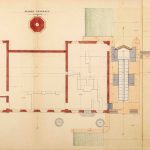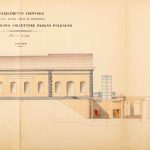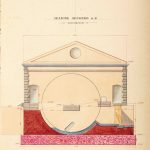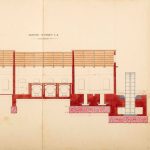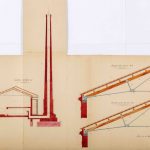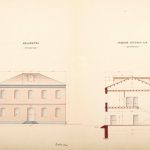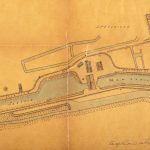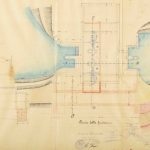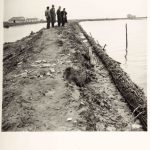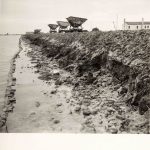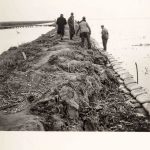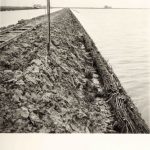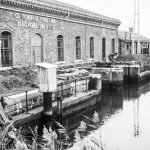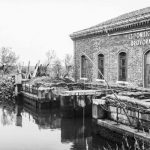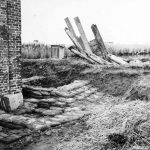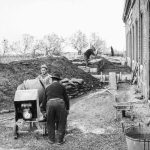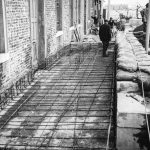Sadocca dewatering pump | Due Consorzi, Due Archivi – Storia del Territorio
Sadocca dewatering pump
NAME: Idrovora Sadocca (Sadocca dewatering pump)
LOCATION: Porto Viro (Ro)
ORIGINAL CONSORTIUM OF BELONGIN: Consorzio per la Bonifica Polesana (consortium for the restoration of Polesine) (1890-1970)
DATE OF CONSTRUCTION: 1897-1902
DESIGNER: engineer Carlo Veronese
HISTORICAL NOTES:
The restoration project in the Acque Dolci area, in Contarina, was undertaken by the consortium for the restoration in Polesine which, at that time, had already been working on the construction of the Padano Polesano manifold. The restoration was essential because the excavation of the new canal had caused damage to the previously existing buildings, and it was, therefore, vital to speed up the creation of the two new dewatering pumps (Sadocca and Vallesina) envisaged by the project of the 14th of December 1898.
The first interventions carried out on the Sadocca basin were completed in 1902 and paid for in 1903: in addition to the arrangement of the drains, there was also the construction of the dewatering pump and the road, on the border with Valli Salse, that belongs to the protected area of the Venice Lagoon.
According to the original project, Sadocca pumping station was supposed to be equipped with a water wheel at the out-flow of the Sadocca Esterno into the Po di Levante but, in the end, when it came time to get down to work, the wheel was replaced by two steam engines that could start just as many turbines: given the urgency, the machines were turned on in 1897, i.e. before the construction works were completed.
When Chiavichetta and Ca’ Giustinian dewatering pumps, which were built between 1914 and 1921, started working, some changes had to be made to adapt Sadocca dewatering pump to the new flow rates: between 1926 and 1927, the turbines were removed and two powerful diesel engines created by the company Tosi were installed and connected to two centrifugal pumps. The old machines and the replaced sluice gates were sold in November 1926.
One of the pumps was later powered with electricity, although, in the event of a blackout, it could still be powered by the diesel engine.
In 1950, the progressive subsidence of the land that was hindering the effectiveness of the plant made it necessary to adapt the dewatering pump to the changed conditions: in 1960 the land surrounding the plant seemed to have sunk between 1.60 and 1.70 metres. In order to prevent overflows into the drainage basin during high tides, the walls of the basin had to be raised and reinforced and tunnels that the rising water could overflow into had to be closed.
Further work was carried out after the coastal storm of the 4th of November 1966: the water got over the top of the protective wall and caused serious damage to the masonry work of the vaults of the drainage ducts and to the tunnel that originally allowed the natural flow of water and which had been blocked to cope with the lowering of the ground.
To date, despite the numerous changes and improvements it has undergone over the years, Sadocca dewatering pump still retains its original charm.
___________________
![]()
Project funded by Regione del Veneto – L.R. 5/09/1984 n. 50, art. 44 – DGRV n. 618 del 11 maggio 2021 e n.1411 del 12 ottobre 2021 – Decreto del Direttore della Direzione Beni Culturali e Sport n. 325 del 27.10.2021
Photos Alberto Bonatti
 Consorzio di Bonifica Delta del Po
Consorzio di Bonifica Delta del Po 